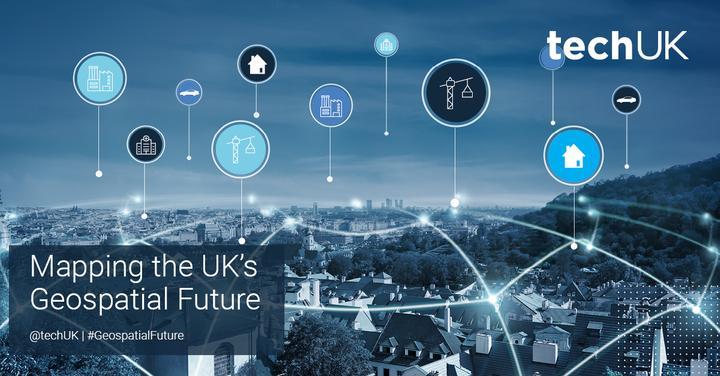What does Geospatial data mean for the tech sector?

Geospatial data (information that holds an implicit or explicit association with a location relative to Earth) has been integral to insightful decision-making and achieving cost efficiencies for quite a while now.
Many organisations have been relying on Enterprise-level, geo-enabled systems and secure databases to manage spatial information flow, logistics and finances in order to make data driven decisions around operational and strategic challenges. These practices and processes are intrinsically linked– at various levels and extents - to Technology: as an enabler for accurate, precise and cost-efficient data collection, as a facilitator for format transformation and interoperability, and host for advanced data analytics, among others.
From increased computational power in personal laptops and virtual machines, to sensors and more recently smartphones, we have never been in a better position to capture, integrate, analyse and share benefits from Geospatial data. Importantly, modern cloud technologies and capabilities (including SaaS, PaaS or even GIS as a service) facilitate fast, secure and efficient access to large Geospatial datasets, and support cloud-based large-scale analytics, as well as data security, accessibility and availability.
It would be amiss not to reference at this point the obvious links between Geospatial data and emerging technologies, such as autonomous vehicles, indoor positioning techniques, and even Geo-Blockchain (data updates in cryptographic security environments, land management, and even Environmental preservation). As part of Costain's work with clients in the Highways, Rail, Utilities and Energy sector, we pioneer use of environmental, biodiversity and sustainability data to inform digital Design & Construction; weather feeds, flood alerts and machine learning techniques to support proactive maintenance operations; IoT and sensors feed spatial models for noise monitoring; live traffic feeds to inform road network status reports and updates for organisations and members of the public. Location-based intelligence further complements system and process integration with adjacent technologies, such as UAV, Smart Cities, BIM, AI techniques, while Augmented and Virtual Reality solutions link with efforts in the Digital Twin space for operational efficiency and cost reduction.
Another key enabler in this space has been the democratisation of Geospatial data through organisations, such as Ordnance Survey, Natural England, Historic England, Environment Agency, Transport for London, Crown Estate, Canal and River Trust, British Geological Survey among many others and supported by the Geospatial Commission, that have realised the benefits from sharing information towards informing products and services in a variety of sectors, Including Technology. More recently, significant developments in the satellite imagery and remote sensing arena have enhanced efforts around geomatics and earth observation data integration with aforementioned rapid machine-learning capabilities as product or service enhancements for the location market.
This strategic direction around data socialisation, either via direct downloads or map services originating from online portals, encourage use of open formats and interoperability, as well as cross-pollination between disciplines and disparate technologies. APIs are considered key integrators in this space, albeit require specialist skills that might impact inclusive culture. Further activities to support these efforts might be around providing incentives for organisations to share information, perhaps through a reward scheme or a centralised pool of shared location intelligence.
It is prudent to point out at this stage that a critical first step in reaping benefits from use of Geospatial data originates from initial data capture processes, standards and formats that will either support or hinder consolidation with other datasets- emphasis here on contextual information, appropriate attribution and schema, along with meaningful naming conventions that clearly communicate themes or vintage. Provided these considerations have been embedded in the data generation activities, location-based intelligence can be a brilliant link and powerful ally in driving technological advancements that support innovation and collaborative engagements.
You can read more insights from techUK's #GeospatialFuture campaign here!

Laura Foster
Laura is techUK’s Associate Director for Technology and Innovation.








